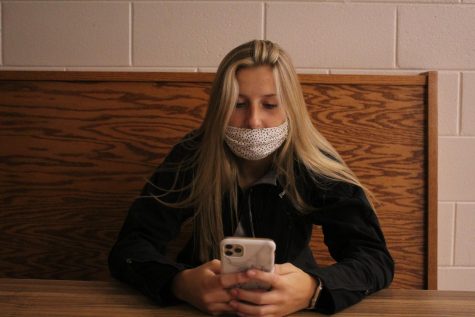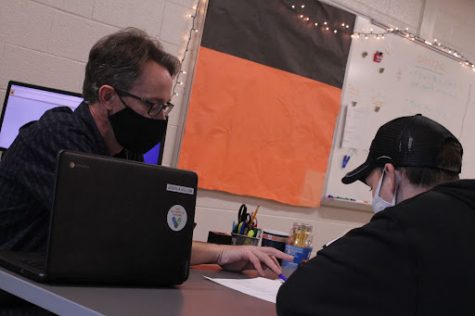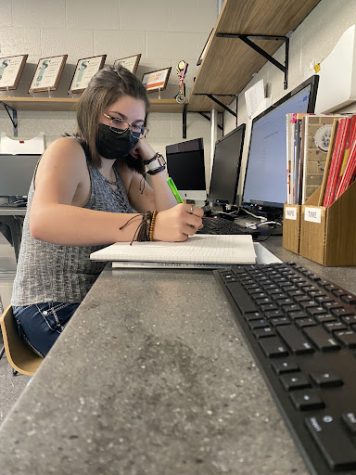Senioritis: pandemic or pushover?
Diminished interest in early wake-ups, chronic fatigue, long periods of daydreaming and a growing resentment in all school-related activities. The aforementioned conditions make up only a small fraction in the long list of symptoms associated with senioritis.
This debilitating condition affects a large amount of students worldwide; both high school and college seniors. In fact, according to The Omniscient around 78 percent of seniors reported having the ailment. Though the condition can occur independently, it can also be contracted from infected individuals.
These individuals may spread the disease by getting other students to skip school with them, skip working on homework to hang out or by making more it socially acceptable to sleep one’s days away.
However, sweeping statistics and nationwide findings hardly explain the risks of this very real threat to one’s educational potential. So how does senioritis affect Stockbridge seniors?
Senior Morgan Sipes, an unfortunate victim of senioritis, expressed that she thinks not only can the phenomenon be encouraged by other students, but that the majority of seniors are suffering from it.
“I think all seniors have it, it is very common,” Sipes said. “All of us just do not care anymore and all of our grades are suffering.”
She also thinks that it can definitely be contagious from peers who suffer from it.
“If your friends have senioritis, they’ll say things like, ‘Oh, let’s go do this instead of your homework’,” Sipes said.
However, this does not mean the condition is inescapable. Another senior, Zane Turner, had a much more uplifting view of the situation.
“When I started junior year, I felt like I started with senioritis,” Turner said. “Even though I wasn’t a senior, I totally just gave up and did not do anything, and that caused my grades to slip and my GPA to go down, that encouraged me to do better in my senior year.”
So, what steps do the afflicted need to take to alleviate their condition so they can turn their situation around.
Firstly, while it is considered fine to take time to relax, it is still important to try not to overdo it. Instead of overworking to that point of giving up, taking a break before exhaustion would help a student work at a more efficient pace overall.
Secondly, set smaller goals that are easier to achieve. Breaking down a task into smaller parts helps students focus on one task at a time. A mountain of work will turn into doable steps.
And lastly, it is crucial that students remain vigilant when around people who show symptoms and may inadvertently spread the condition.







